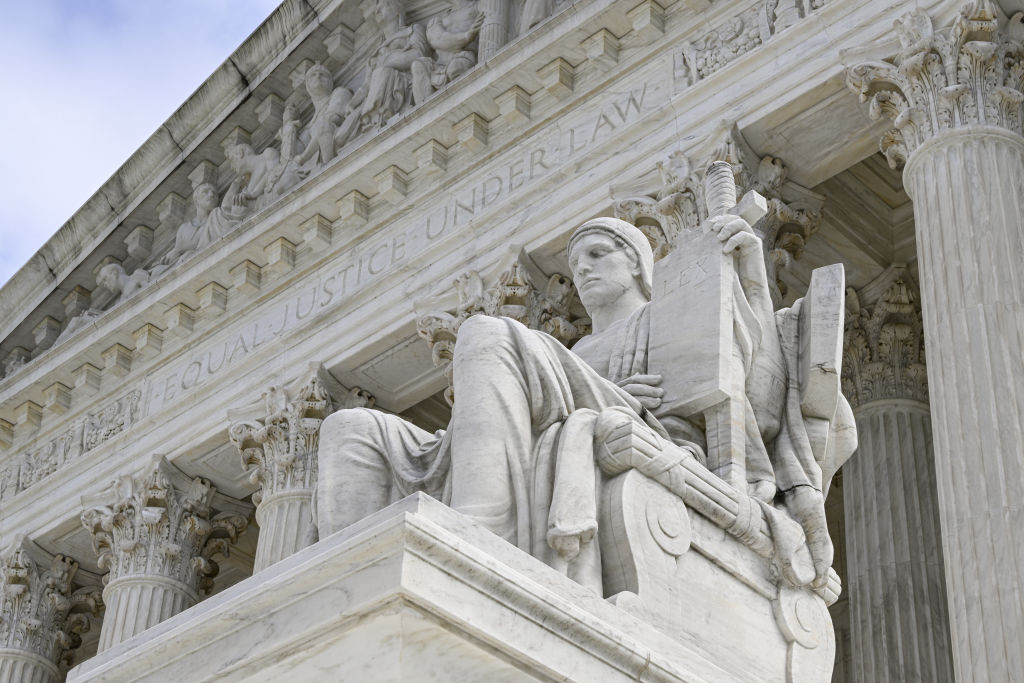The United States Supreme Court resumes hearing cases on Monday, October 2. Wasting no time, the first week of the new term includes two cases that could bring significant decisions. Already on the docket for later in the term are cases on gun control and social media free speech, as well as voting redistricting and others. This week, the Court hears three cases, including Consumer Financial Protection Bureau (CFPB) v. Community Financial Services Association of America and Acheson Hotels v. Laufer.
Follow the Money
The CFPB case will decide whether one Congress can bind future lawmakers to fund legislation. The Dodd-Frank “reform” bill passed in 2010 mostly along party lines, with just three Republican senators voting for it. Among the many provisions was one creating the CFPB. However, the CFPB is funded not by Congressional allocation from the general treasury in appropriations bills but through fees collected by the Federal Reserve.
The law’s conservative challengers claim the scheme to fund the CFPB violates the Constitution’s Appropriation Clause, Article I, Section 9, which states: “No Money shall be drawn from the Treasury, but in Consequence of Appropriations made by Law; and a regular Statement and Account of the Receipts and Expenditures of all public Money shall be published from time to time.” If the Court allows the CFPB’s funding mechanism to stand, we can expect more creative funding from Congress to avoid future moderation of their spending preferences.
Public Service or Frivolous Lawsuit?
Later in the week, the Court will hear arguments in Acheson Hotels v. Laufer. The Americans with Disabilities Act includes a provision requiring hotels to list details about their properties’ accessibility so the disabled may be informed consumers. The law allows for private suit if a hotel is not compliant, harming a would-be traveler. But what if a plaintiff never intended to stay there in the first place? Ms. Laufer visited hotel websites and looked for violations, suing over 600 hotels she never intended to visit. Can she recover, or must a plaintiff have sustained actual damages?
Will the Court Reconsider Its Chevron Deference?
Perhaps the most significant case for conservatives is Lober Bright Enterprises v. Raimondo. There’s no argument date set for this monster. The case will rule on the “Chevron Deference,” a Supreme Court-made doctrine that says federal courts should defer to federal agencies’ interpretation of laws when examining their regulations. The doctrine is generally despised by constitutionalists and limited government advocates and celebrated by big government types. How important is it? You can tell by this headline from Politico, “Democrats call on Thomas to recuse himself from Chevron case over Koch network ties.”
The Right to Self-Defense
 Later in November, the Court will hear a potentially major gun control case in U.S. v. Rahimi. Mr. Rahimi challenges the constitutionality of a federal gun ban against people subject to domestic violence restraining orders. This case was made viable due to the Court’s 2022 case, New York State Rifle & Pistol Association v. Bruen. That is perhaps the most robust case articulating an individual right to keep and bear arms published by the High Court. What it means, however, remains to be seen regarding so many firearm laws and regulations. That’s why cases like Rahimi’s can matter far outside their seemingly narrow subject matter. They have the potential to tell us much more about the law than their limited circumstances suggest.
Later in November, the Court will hear a potentially major gun control case in U.S. v. Rahimi. Mr. Rahimi challenges the constitutionality of a federal gun ban against people subject to domestic violence restraining orders. This case was made viable due to the Court’s 2022 case, New York State Rifle & Pistol Association v. Bruen. That is perhaps the most robust case articulating an individual right to keep and bear arms published by the High Court. What it means, however, remains to be seen regarding so many firearm laws and regulations. That’s why cases like Rahimi’s can matter far outside their seemingly narrow subject matter. They have the potential to tell us much more about the law than their limited circumstances suggest.
Redistricting or Gerrymandering?
The Court will hear at least one voting rights case early in the term, with Alexander v. South Carolina State Conference of the NAACP. The state asked for the Justices to hear the case early and publish their decision by January so it can make adjustments to its voting district map in a timely fashion before the 2024 elections. The NAACP challenged the state legislature’s district map as unconstitutional racial gerrymandering. Republican legislators drew new district lines, making it a safe win for Republicans.




